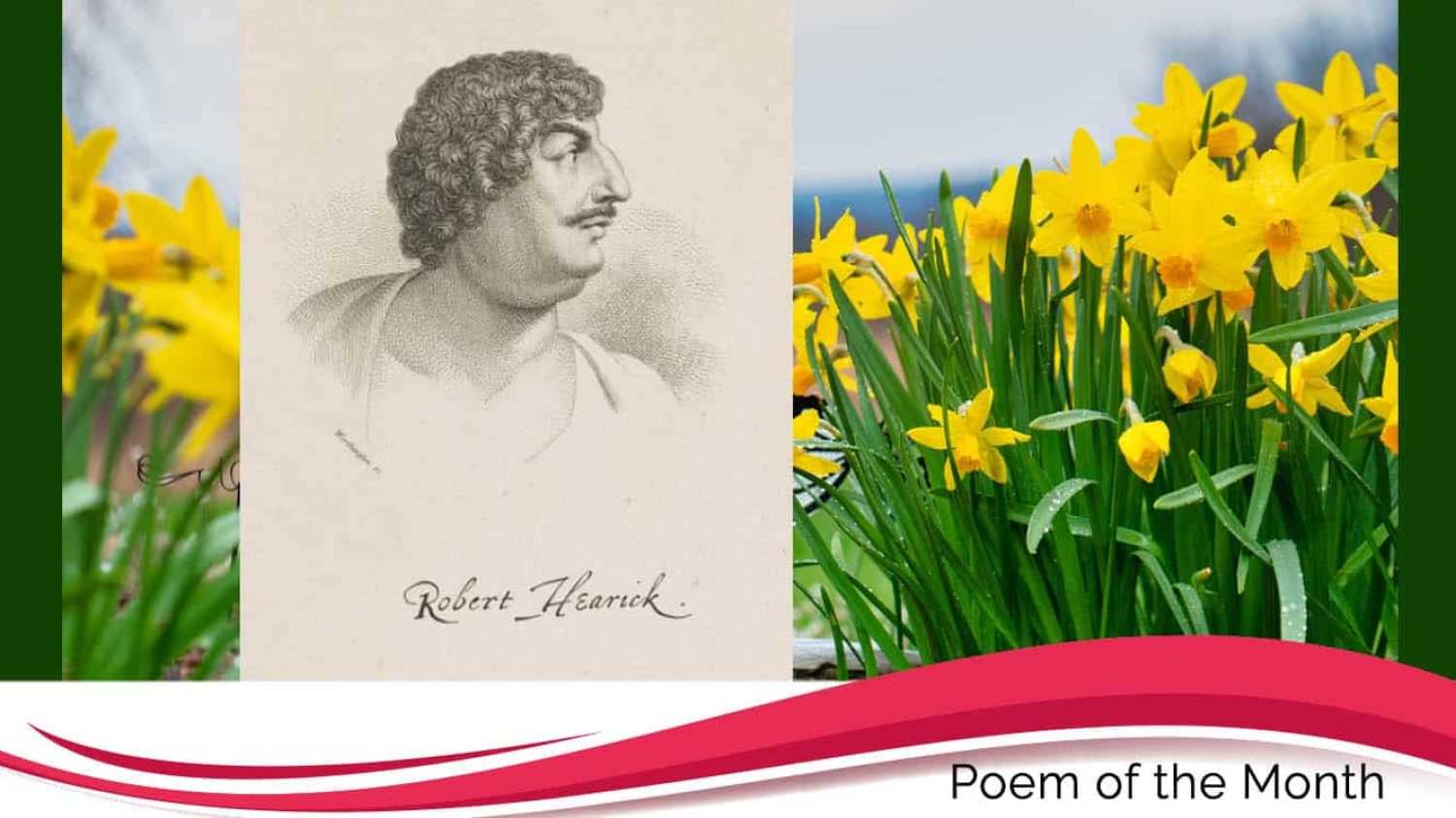Robert Herrick (1591 – 1674) was a cleric and a prolific poet who wrote over 2,500 poems. He’s probably best remembered for his poem To the Virgins, to Make Much of Time with its famous first line, “Gather ye rosebuds while ye may…”. Herrick fell out of favour during the Puritan era, and his work was only rediscovered in the 19th century. He never married and it is thought all the women to whom he addressed his love poems were fictional.
The poet Swinburne said that Herrick was “the greatest song writer ever born of English race” and many of his poems have been set to music.
Here’s his lovely poem To Daffodils, a work about the fleeting nature of time and how life inevitably withers away, like the flowers. And yet there can be comfort in the knowledge that time is humanity’s only constant and that a new dawn will inevitably come.
To Daffodils by Robert Herrick
Fair Daffodils, we weep to see
You haste away so soon;
As yet the early-rising sun
Has not attain’d his noon.
Stay, stay,
Until the hasting day
Has run
But to the even-song;
And, having pray’d together, we
Will go with you along.
We have short time to stay, as you,
We have as short a spring;
As quick a growth to meet decay,
As you, or anything.
We die
As your hours do, and dry
Away,
Like to the summer’s rain;
Or as the pearls of morning’s dew,
Ne’er to be found again.
In the first stanza, the poet directly addresses the daffodils, expressing sadness when they fade away and begging them not to wither too soon. In the next stanza he equates the situation of the flowers with that of humanity. Humans too will age, change and pass away.
The poem first appeared in 1648, when it was published in Herrick’s volume Hesperides.
Listen to the poem being read:
Or a musical version:
Did you enjoy this poem? Let me know by leaving a comment.
Comments are moderated, and will not appear until approved.
[DISPLAY_ULTIMATE_PLUS]

Carol Noble
A lovely poem. I remember it from my schooldays.
margaret wright
Lovely poem.
I first met it in the 1940s, when my father’s friend wrote a parody called ‘Ode to a dying butterfly’. Dad’s friend had had very basic education, as had so many inner Sydney city children at the time of World War 1. ‘Uncle’ Len was an amateur boxer, yet he knew and loved poetry, as did my father. They could quote poetry endlessly. This says a lot for the education considered important at the time. The two old friends enjoyed writing their parodies.
Don’t read on if you don’t want this to cloud further thoughts of ‘Daffodils’……
‘O butterfly, I weep to see
You writhing there in agony..’
Susannah Fullerton
Oh, poor butterfly, but am so glad you enjoyed the daffodil poem.
Sally Petherbridge
Having just finished planting about 40 daffodil bulbs in my front garden I did appreciate this poem! But I am hoping my daffodils will re-appear and spread every year, as they are meant to do.
Susannah Fullerton
Well done – hope they all come up and looks gorgeous and then your heart can ‘dance with the daffodils’ as did Wordsworth’s.
Jacqueline French
Simple, wise, beautiful , though I found the reader rather pedestrian .
Great choice of poem, that we all used to know !
Susannah Fullerton
It’s sometimes rather a challenge to find fabulous readings of the poems I select. If only John Gielgud and Richard Burton had done recordings of every poem! Yes, it is a lovely poem.